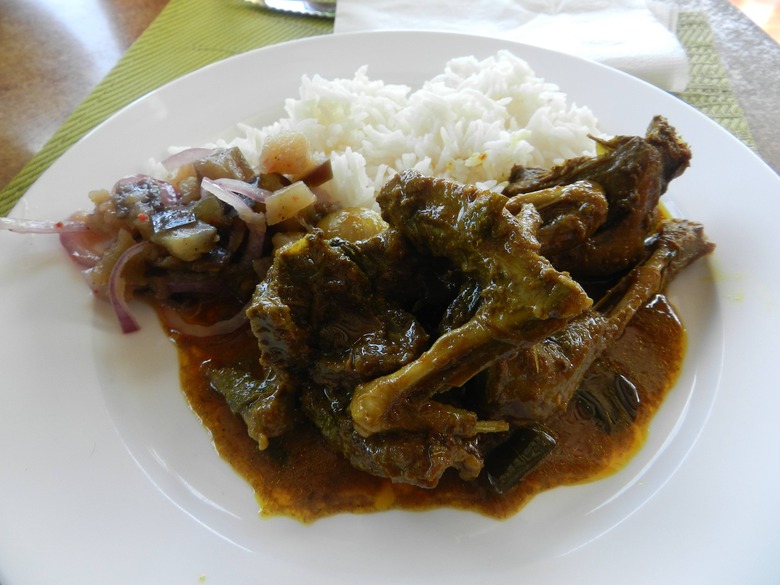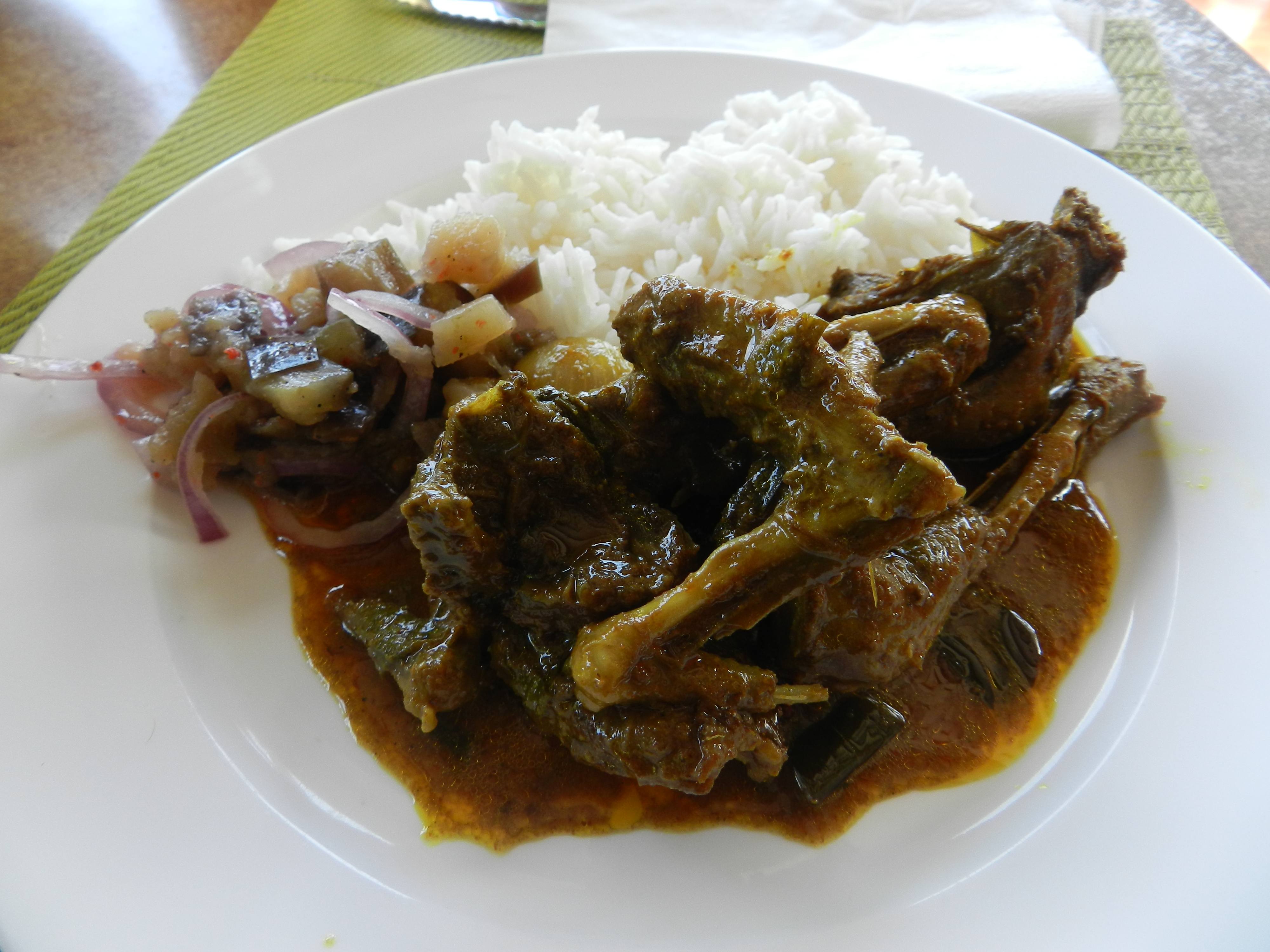A Seychelles Guest House Offers Great Views, A Pool, And Fruit Bat Curry
Marie-Rose Prempeh-Lepathy runs a seven-room guest house called Albizia Lodge Green Estate on Mahé Island in Seychelles with her husband, Charlie, and their grown children, Denis and Clara. The view is magical, and the guest house offers a daily English breakfast, free wifi, cable TV in the main lounge, and a swimming pool — and for an extra charge, nightly meals of traditional Creole cuisine for guests and for anyone else who wants to taste the food.
"The leader is Charlie," says Prempeh-Lepathy. "He does everything around the place, from driving, maintenance, and cooking. Curry is his specialty. It is mentioned on TripAdvisor — 'go for Charlie's curry.' He was one of the best barman also in his time, and he can put together the best cocktails to wow you. He is a very good fisherman also. His record is a 200-pound blue marlin from our years back on Denis Island. Our son is right next to him in everything he does, and he is also good in IT."
Clara has just finished a two-year course in food production and the culinary arts, and this year she won first prize in a local cooking competition and was nominated to represent Seychelles in the annual International Young Chef Olympiad in Kolkata, India. She helps out at the guest house and impresses the guests now and then with her dishes, though she says that she doesn't want to continue working with her family, but wants experience in a five-star hotel. "I am more computer/paper work," she continues, "getting the people here, doing the accounts, but I am also pretty good in the kitchen and garden. I love gardening. We have our spice garden, so that mostly everything is fresh from the garden."
"We love cooking for our guests," says Prempeh-Lepathy. "We are always excited to wow them. I always tell them that we do not have a menu — you are our menu, so tell us what you want to eat. The most challenging are those staying for two weeks and eating every day with us. Fish is our main specialty, as we get it fresh daily from our local fisherman down the beach. Sometimes our guests will come wanting to eat a specific fish. If we do not have it, we will try to get it from the market or from our local fisherman. But the good thing about being in Seychelles is that you never run out of fish varieties. They can have a different fish everyday of their stay. Of course, we give them the choice of meat for those who are not big fans of seafood. And you can never go wrong with Creole food if you love cooking. The spices do the magic for you. Sometimes we are afraid that they will say they have had enough of all the spices and rice and curries but they still come back for more."
One specialty is particularly unusual. "After a chat with our guests about the birds that they see flying past at sunset, the famous fruit bats," says Prempeh-Lepathy, "we gently tell them the story of them being a delicacy here, and have to stress that they eat only fruits."
She says that from what their parents told her and Charlie, many years ago the fruit bats were hunted by everyone, from the French and British colonial occupiers onward, with guns for those who had them, or with hooks hanging in the trees to trap their wings, or with nets — which is how they're hunted today. Fruit bat wasn't considered a delicacy, as practically everyone hunted them and they were considered a common meat just like fish or chicken.
"The good thing," Prempeh-Lepathy says, "is that our ancestors left us with savory recipes for fruit bat curry." More privileged families used the bats for civets, French-style stews, as red wine was available to them.
Prempeh-Lepathy often shares her fruit bat curry recipe with her guests, she says, and she told me how it is made:
The fruit bat is cut into small pieces and soaked overnight in diluted vinegar and red wine with chopped onions, garlic, ginger, various green herbs, and fresh curry leaves. It is important to remove all the glands, as they would lend the dish a strong flavor and odor.
When the bat is ready to be cooked, the liquid is drained and reserved and the meat and solids from the marinade are brown in hot oil. Curry powder, turmeric powder, fresh chiles, and some of the reserved liquid are added, the pan is covered, and it it simmered until the meat it done. After seasoning with salt and pepper, it is served with steamed rice.
"Next time," says Prempeh-Lepathy, "we would love to teach you how to make the perfect octopus curry or a grilled red snapper with fresh herb sauce from the garden."

